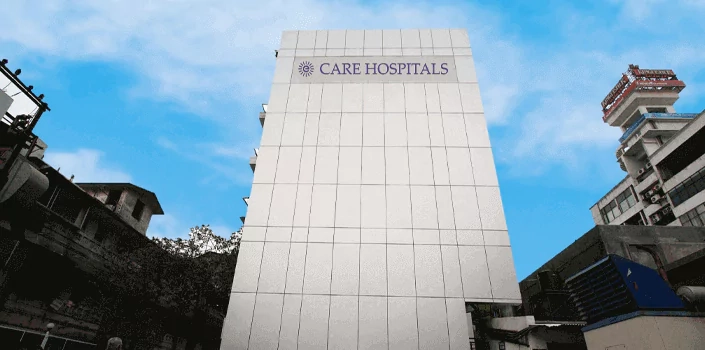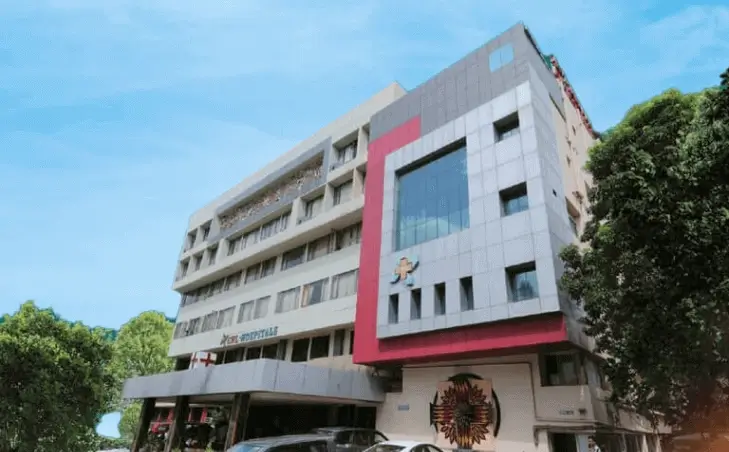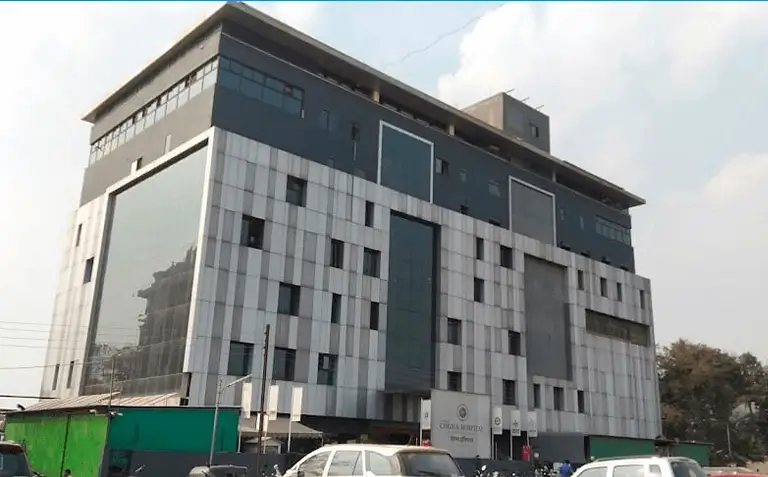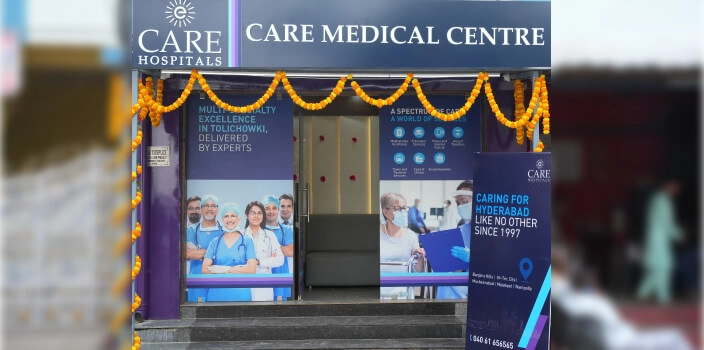-
Doctors
-
Specialities & Treatments
Centre of Excellence
Specialties
Treatments and Procedures
Hospitals & Directions HyderabadCARE Hospitals, Banjara Hills CARE Outpatient Centre, Banjara Hills CARE Hospitals, HITEC City CARE Hospitals, Nampally Gurunanak CARE Hospitals, Musheerabad CARE Hospitals Outpatient Centre, HITEC City CARE Hospitals, Malakpet
HyderabadCARE Hospitals, Banjara Hills CARE Outpatient Centre, Banjara Hills CARE Hospitals, HITEC City CARE Hospitals, Nampally Gurunanak CARE Hospitals, Musheerabad CARE Hospitals Outpatient Centre, HITEC City CARE Hospitals, Malakpet Raipur
Raipur
 Bhubaneswar
Bhubaneswar Visakhapatnam
Visakhapatnam
 Nagpur
Nagpur
 Indore
Indore
 Chh. Sambhajinagar
Chh. SambhajinagarClinics & Medical Centers
Book an AppointmentContact Us
Online Lab Reports
Book an Appointment
Consult Super-Specialist Doctors at CARE Hospitals

Best Hospital for Lumpectomy Surgery in Hyderabad
- Advanced Technology
- Shorter Hospital Stay
- Pre & Post-Operative Care
- All Insurance Accepted

Chat With Our Experts
Get second opinion on Whatsapp
25 lakhs+
Happy Patients
Experienced and
skilled surgeons
17
Health Care Facilities
Top most Referral Centre
for Complex Surgeries
Advanced Lumpectomy Surgery
Lumpectomy marks a breakthrough in breast cancer treatment that gives patients a less invasive surgical alternative to complete breast removal. This breast-conserving surgery removes the cancerous "lump" of tissue and a small margin of healthy tissue around it.
Doctors also call this procedure a partial mastectomy, quadrantectomy, or segmental mastectomy. The procedure has become the cornerstone of early-stage breast cancer treatment. Surgical precision has improved with new advances like intraoperative fluorescence guidance that helps surgeons spot cancerous tissue within the resection cavity. This article walks you through the complete lumpectomy experience—from procedure basics and preparation steps to what you can expect during recovery and the potential benefits.
Why CARE Group Hospitals is Your Top Choice for Lumpectomy Surgery in Hyderabad
CARE Cancer Institute takes an all-encompassing approach to cancer treatment by combining medical, surgical, and radiation oncology services. The hospital treats thousands of inpatients yearly across specialties with remarkable success rates. Patients can expect:
- Expert opinions from leading specialists
- Custom treatment plans that match individual requirements
- Clear cost breakdowns with detailed information
- Dedicated support team throughout the treatment process
Best Lumpectomy Surgery Doctors in India


Innovative Surgical Techniques at CARE Hospital
The surgical team uses innovative techniques such as oncoplastic lumpectomy that combines tumour removal with cosmetic breast surgery to improve post-surgical results. The team also uses innovative technology for accurate tumour targeting.
Indications for Lumpectomy Surgery
Doctors recommend lumpectomy for:
- Early-stage breast cancer (T1-2 tumours)
- Ductal carcinoma in situ (DCIS)
- Small tumours with clear margins
- Paget's disease of the nipple.
Types of Lumpectomy Procedures
CARE Hospitals offers various lumpectomy techniques, such as:
- Standard lumpectomy with direct incision over the tumour
- Oncoplastic lumpectomy that combines cancer removal with plastic surgery methods
- Minimally invasive options with smaller incisions
- Ultrasound-guided and stereotactic-guided procedures for exact tissue removal
The surgical team selects the most suitable approach based on each patient's condition and treatment goals to ensure the best possible results.
Pre-Lumpectomy Surgery Preparation
Your surgeon will meet with you to discuss treatment options and answer your questions. The healthcare team provides specific guidance about:
- Stopping certain medications or supplements
- Fasting guidelines (typically no food or drink after midnight)
- Quitting smoking and alcohol before the surgery
Lumpectomy Surgical Procedure
Lumpectomies usually take place under general anaesthesia and last 15-40 minutes. A radiologist finds the tumour through imaging and places a thin wire or radioactive seed as a marker. The surgeon removes the cancer along with a small rim of surrounding tissue. The procedure often includes examining some lymph nodes.
Post-surgery Recovery
Patients typically head home the same day after surgery. You might feel some discomfort, though prescribed pain medication or over-the-counter options can help manage it. Your healthcare team will guide you through wound care, activity limits, and follow-up visits.
Risks and Complications
Possible complications include:
- Bleeding where the cut is made
- Infections that need antibiotics
- Short-term swelling and bruising
- Changes in how your breast looks and scarring
- Fluid buildup (seroma) or blood collection (hematoma)
- Numb or tingling feelings around the surgery site
Benefits of Lumpectomy Surgery
A lumpectomy saves most of your breast while removing the cancer effectively. Research shows patients who get a lumpectomy with radiation have survival rates equal to mastectomy. On top of that, it keeps a more natural sensation and appearance.
Insurance Assistance for Lumpectomy Surgery
Most of the health insurance plans cover lumpectomy, though you might face some out-of-pocket costs. Your insurance provider can explain coverage details, and a financial navigator might help you understand the costs better.
Second Opinion for Lumpectomy Surgery
A second opinion helps confirm your diagnosis, understand treatment options, or learn about different approaches. This step might support your current plan or show you new possibilities. Doctors welcome second opinions.
Conclusion
Lumpectomy is an excellent option for many breast cancer patients today. This breast-conserving approach helps women keep their natural appearance and treats cancer effectively. Medical advances have changed breast cancer surgery dramatically. Early-stage cases show similar success rates between lumpectomy with radiation and complete breast removal.
CARE Hospitals delivers excellence in this field. Patients receive complete support throughout their treatment experience. The medical team combines surgical expertise with state-of-the-art technology to achieve the best results. Patients get great value from individual-specific care plans. The staff communicates clearly about expectations before, during, and after surgery.
Cancer surgery can feel overwhelming, but understanding the whole process reduces anxiety. Knowledge equips patients to take active roles in their treatment decisions and recovery. CARE Hospitals' specialised lumpectomy centre gives hope to breast cancer patients. It offers a chance to beat cancer while maintaining life quality and physical wholeness.
Lumpectomy Surgery Hospitals in India
-
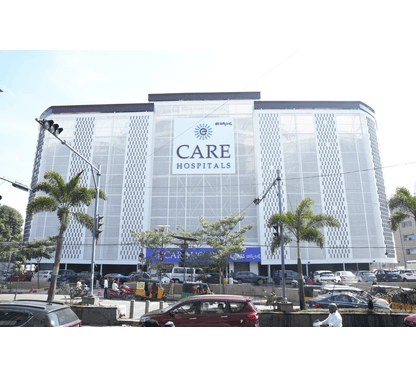
CARE Hospitals, Banjara Hills, Hyderabad
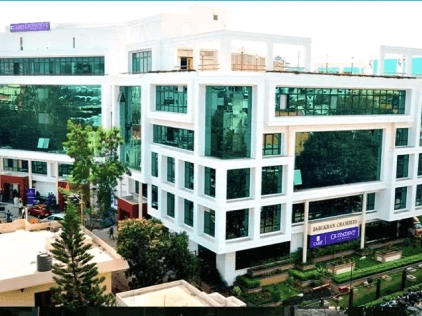
CARE Hospitals Outpatient Centre, Banjara Hills, Hyderabad
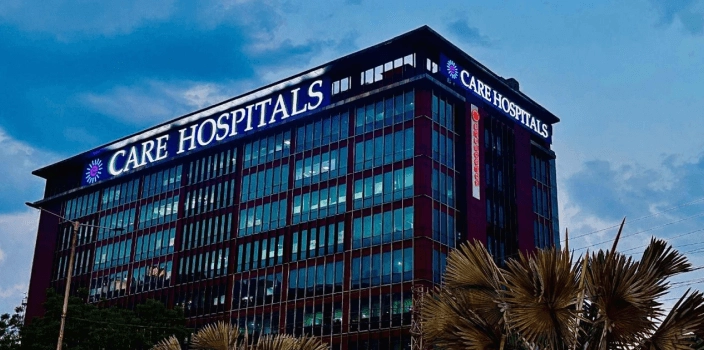
CARE Hospitals, HITEC City, Hyderabad
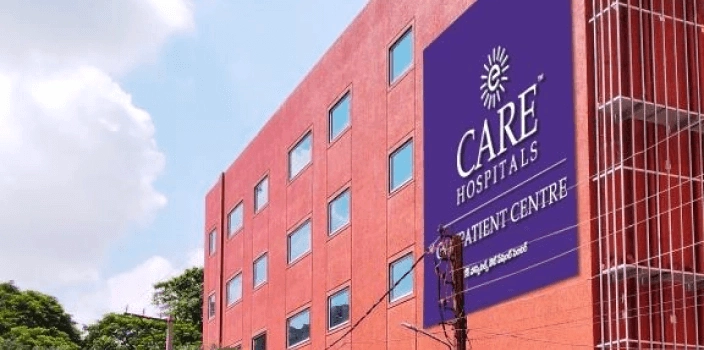
CARE Hospitals Outpatient Centre, HITEC City, Hyderabad
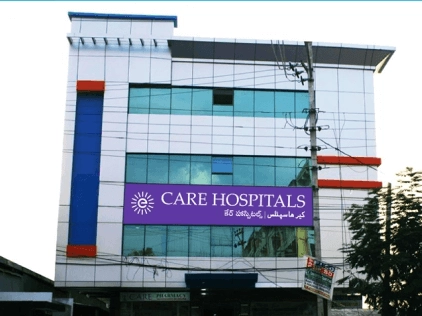
Gurunanak CARE Hospitals, Musheerabad, Hyderabad
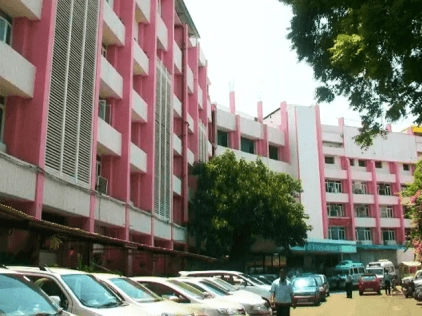
CARE Hospitals, Nampally, Hyderabad
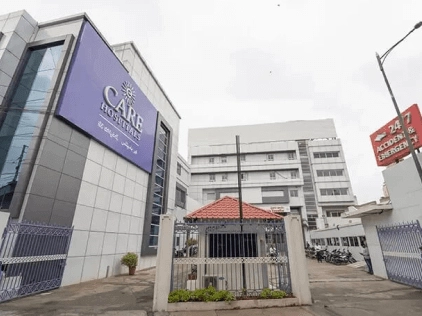
CARE Hospitals, Malakpet, Hyderabad
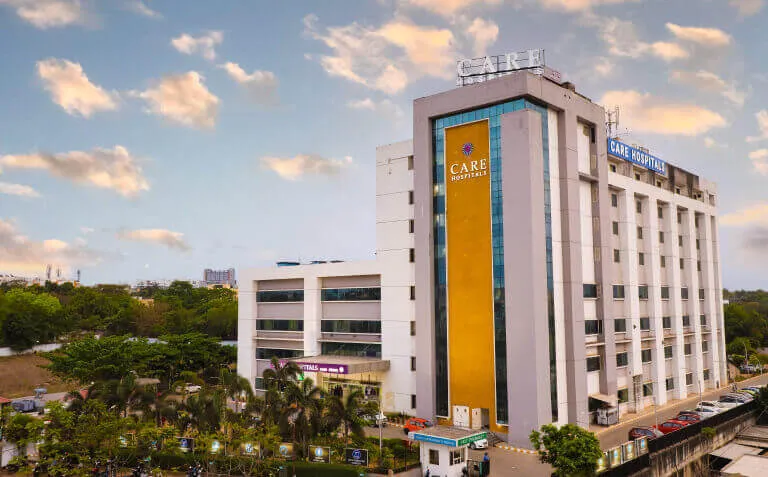
CARE Hospitals, Bhubaneswar
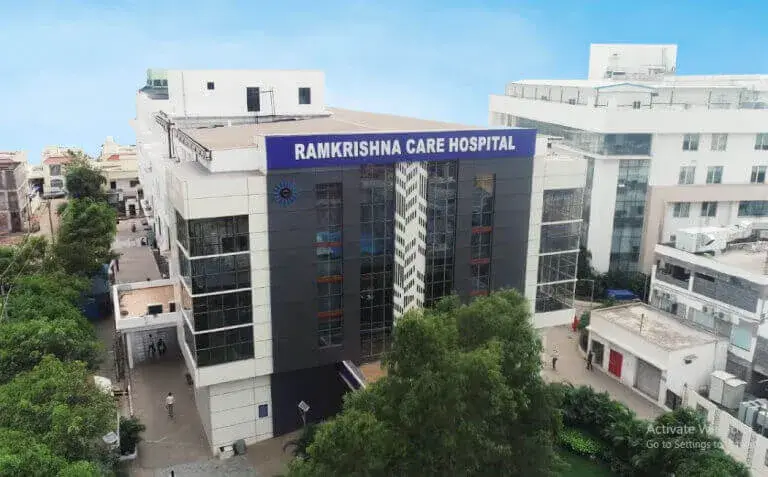
Ramkrishna CARE Hospitals, Raipur
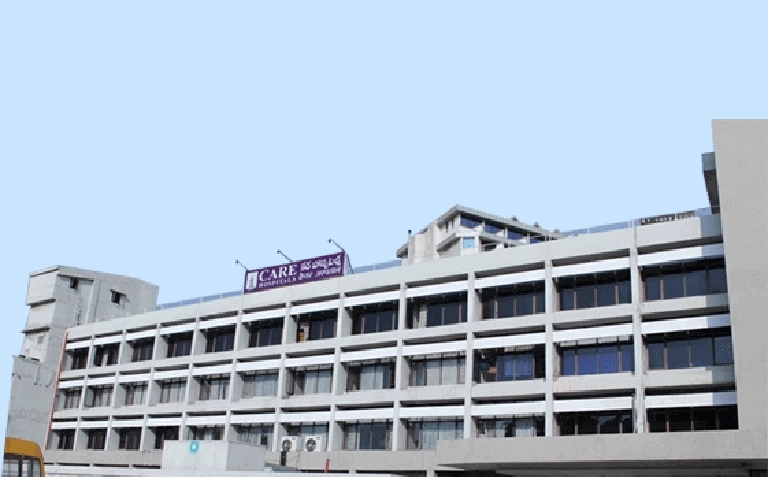
CARE Hospitals, Ramnagar, Visakhapatnam
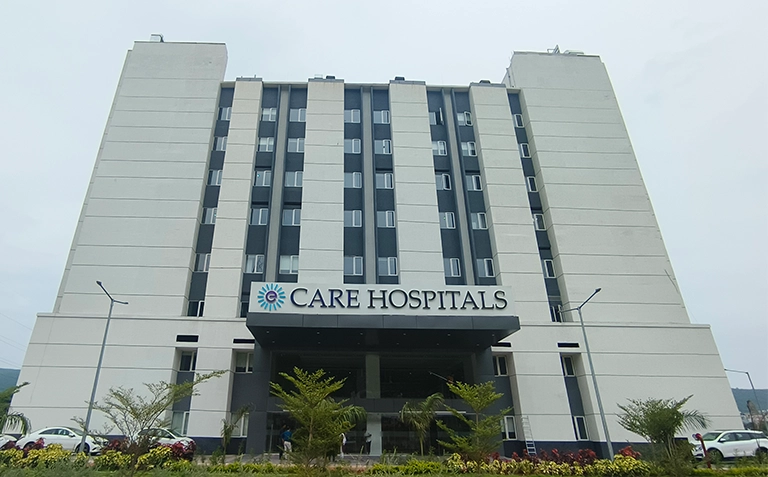
CARE Hospitals, Health City, Arilova
Related Surgeries
- Best Hospitals for Ovarian Cancer Surgery in Hyderabad
- Best Hospitals for Endometrial Cancer Surgery in Hyderabad
- Best Hospitals for Thyroidectomy Surgery in Hyderabad
- Best Hospitals for Axillary Lymphadenectomy Surgery in Hyderabad
- Best Hospital for Lumpectomy Surgery in Hyderabad
- Best Hospital for Breast Cyst Excision Surgery in Hyderabad
Frequently Asked Questions
A lumpectomy saves most of your breast tissue through a targeted surgical approach. The surgeon removes the cancerous tumour and a small margin of healthy tissue around it. This method differs from mastectomy because it preserves your breast's natural look instead of removing the entire breast.
Medical teams recommend this surgery to treat early-stage breast cancer, especially when you have a tumour that's small compared to your breast size. Patients with single tumors in one area make good candidates, as surgeons can remove the growth without changing the breast's shape by a lot.
The candidates who qualify for the lumpectomy surgery are having the following indications:
- Cancer limited to one breast area
- A tumour that's small compared to the breast size
- Sufficient tissue left for reshaping after surgery
- Good health to handle radiation therapy afterwards
Yes, it is safe and proven to work. All the same, this surgery carries some risks like any procedure. These include infection around the cut, fluid buildup, scarring, and temporary arm swelling.
Patients usually feel some discomfort that goes away within weeks. Simple over-the-counter pain relievers like acetaminophen help manage any pain.
Surgeons complete the procedure in one to two hours.
This surgery matters but doesn't fall into the major surgery category. Patients can usually go home the same day since it's an outpatient procedure.
Lumpectomy is a safe procedure, but like any surgery, it comes with some possible risks. These include:
- Bleeding
- Infection
- Pain
- Temporary swelling
- Scarring
- Breast shape changes
- Numbness or tingling in their chest, armpit, or arm
Your body should heal completely within two weeks after the surgery. Your chest, underarm, and shoulder area will feel sore in the initial days. You can get back to your daily routine within days, but you should wait to lift heavy things until you heal more. Most patients head back to work within a week, based on what their job requires.
You might notice some numbness near your surgery site, occasional sharp pains, and changes in your breast's appearance. Scar tissue can make some areas feel hard. If your surgeon removed lymph nodes, you could develop lymphedema (arm swelling) right after surgery or even years down the line.
Surgeons usually put patients under general anaesthesia during lumpectomies. Sometimes they just numb the breast area with local anaesthesia and sedation, which keeps you awake but relaxed.
Your surgeon will use stitches that dissolve on their own. They might also put Steri-Strips (thin sticky strips) or surgical glue on the cut to help it heal. The area where you had surgery will feel firm at first but soften as time passes.
Chemotherapy isn't always needed after a lumpectomy. Your doctor will look at your cancer's specific features, stage, and whether it spread to the lymph nodes. Radiation therapy is more common after lumpectomy because it helps kill any cancer cells that might remain.
Still Have a Question?















